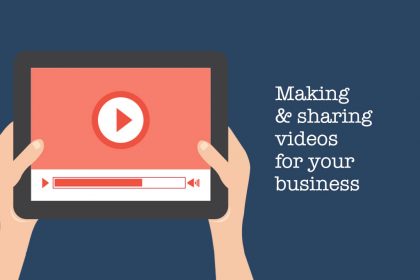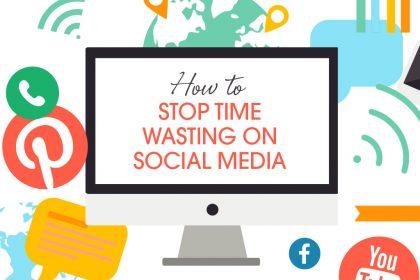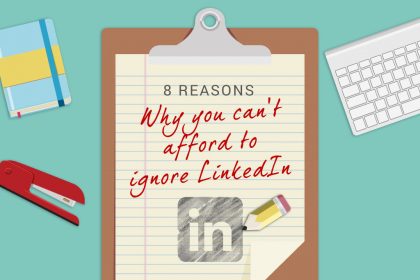How to survive the Facebook apocalypse – eight tips to keep your Facebook page alive
Worried Facebook’s recent announcement means the end of your business Facebook page? Find out why all is not lost, and read eight tips to keep your Facebook page alive.
Last Thursday Mark Zuckerberg made an announcement that was described by Social Media Examiner founder Michael Stelzner as “Facebook apocalypse”.
Mark’s announcement (you can read it in full here) stated that, following feedback from users, Facebook was going to move away from showing ‘public content’ (posts from businesses and pages) and go back to the roots of Facebook: to help people connect with each other.
Why is Facebook’s announcement so shocking?
This announcement appears to have triggered a mass panic among businesses. And it’s easy to see why. Over the years, we have all become used to using Facebook as a free marketing tool. We have been able to share our blogs, promote our products and broadcast our news without cost via our Facebook pages. And these posts have appeared in the feeds of the people who had liked it.
The problem is that so many businesses are now doing this, and over the years we’ve liked so many pages, that our Facebook feeds have been less about what our friends have got up to recently. And more of a dizzying feed of business news, promotions and blogs.
According to Facebook’s feedback, we don’t like this. And if we’re no longer enjoy using Facebook, or it no longer serves its core purpose, we’ll start switching off. So, in an attempt to keep its users happy, Facebook is changing the way it shows content to us.
From now on they’ll be more strict/choosy about what appears in our newsfeed. Which is good news to us as users, but potentially cataclysmic as businesses.
Eight tips to keep your Facebook page alive
However, the Facebook world as we know it isn’t completely coming to an end. There is plenty you can do to protect your business and come through this change as unscathed as possible.
To help you take positive steps forward, here are eight tips to keep your Facebook page alive.
1) Don’t panic
Our first piece of advice to you is not to panic! Over the past five years we’ve seen (and survived) many ‘apocalyptic’ changes in social media and Google search.
As a general rule, the companies that are using best marketing practice and genuinely delivering value come through unscathed. Those who try to do the very minimum for maximum free returns, or who try to outwit the system, are the ones who find themselves penalised.
And even those who are caught out can usually find a way to get back on track. So don’t panic just yet. Instead, make sure you’re following good marketing (and Facebook) practice. Which leads us to…
2) Go back to marketing basics
Basic marketing principles have always worked – whether it’s for a traditional print leaflet or a cutting edge social media campaign. And those businesses who practice good, solid marketing basics will find these latest changes less difficult to navigate.
So what are these marketing basics? It’s knowing the answers to fundamental questions like these:
- Who are your customers?
- Who are your highest value customers?
- What do they want from you?
- What problem do you solve for them?
- What solution do they want?
- What do they find interesting?
Knowing the answers to these questions and using this information to inform the type of content you share on Facebook, and the way you write your posts, will ensure that your posts are valued and engaged with. And if you’re getting engagement then you increase the chance of future posts appearing on your fans’ feeds.
3) Encourage engagement
It will be far more important to get engagement on your Facebook posts in future. So take the time to plan your strategy properly, and choose and write posts that will get likes, shares and, particularly, comments. (We explain how to get more engagement from your Facebook page posts in depth here.)
Keep an eye on how your posts perform, and which your audience engage with more – and do more of them. But, and this is a big BUT, don’t actively ask for likes and shares as Facebook started cracking down on this in 2014.
You can also suggest to your Facebook page fans that they choose “See First” in their News Feed Preferences to ensure your page posts are prioritised in their feed. (They can do this on your Facebook page by hovering over the Following button and selecting See First, as illustrated below.)

4) Go for quality over quantity
If you’re in the habit of posting several times a day on your Facebook page, stop right now! Instead of quantity, from now on you need to follow a strategy of carefully curated pieces that your audience love.
If you find 20 pieces of brilliant content, bombarding your page with them in one day will water down the engagement. Even your most avid fan isn’t going to be able to wade through them all, so will just pick a couple to engage with.
Instead, try to distil the engagement you get into fewer posts, making these posts appear more popular to Facebook – and increase your chances of getting future posts shown in newsfeeds.
5) Move your customers off Facebook
We’ve always warned against being over-reliant on any third party platform or system. If your business is built on, or around, something you have no control over, you’re always at risk of the rug being pulled out from under you.
Businesses go bankrupt out of the blue. Systems crash. And algorithms are suddenly changed. And with it, the plug to your entire business can be pulled.
It’s much more healthy to own your own audience than depend on a third part like Facebook to keep it for you. So by all means build up a healthy fan base on Facebook and other platforms, and absolutely use it to promote what you do. But don’t put all your eggs in Facebook’s basket.
Instead, encourage your Facebook fans to join your own mailing list. Offer incentives for them to give you their email addresses, then take some of the conversation off Facebook. Send them genuinely useful newsletters and offers, and insulate yourself against future changes.
6) Pay for ads
So what do you do if your Facebook business page traffic does fall off a cliff? You can still pay to reach your audience on Facebook. With some investment of time and effort, and clever split testing, you can master Facebook ads.
Used properly Facebook ads are a cost-effective way of reaching a highly targeted audience and growing a profitable business. And with less organic clutter to compete with in people’s Facebook feeds, their impact may even get more powerful in future.
(For now, Facebook are saying we won’t see any big changes in paid promotion, although advertising rates may well increase in future as more businesses are pushed into paid advertising to reach their audiences.)
7) Start a Facebook Group
We ourselves started a free business Facebook Group last summer (you can join here if you’re not already a member) and love the interaction in it. Facebook Groups are a brilliant way to engage with and get to know your ideal audience, to demonstrate knowledge and value, and grow brand awareness and loyalty.
And we’re not alone in moving to Facebook Groups. Last year Mark Zuckerberg himself highlighted the importance of community, and a new emphasis on Facebook Groups.
And since then many media publishers have successfully used Facebook Groups. The Washington Post uses theirs to grow subscriptions, Bloomberg News uses theirs to promote its personal finance articles and highlight content that they wouldn’t normally be associated with. Other publishers are using private Facebook groups as a benefit of subscription or paid membership programs.
(You can read everything you need to know about using Facebook Groups for business here.)
8) Use Facebook influencers
Already large brands and social media companies are looking for solutions to replace Facebook Pages, and for some, influencers is the way forward.
According to one industry expert, “influencer content performs between five and 10 times better in terms of engagement when an influencer rather than a brand posts it.” And with fewer businesses appearing in people’s newsfeed, the accounts that do manage to get organic engagement are likely to see that increase.
So what does this mean for you? Rather than (or as well as) focusing on getting your own content out into an increasingly competitive newsfeed, you can team up with, or work with, another brand or person who has a strong organic following. (Or work on building your own reputation as an influencer.)
Getting THEM to talk about or share what you are doing is doubly powerful: not only are you more likely to get into your ideal customers’ newsfeed, but you’ll also have the perceived seal of approval from someone they respect.
(You can read tips on leveraging the power of influencer marketing by building a brand partnership here.)
Keep calm and carry on posting on Facebook
While the changes Facebook announced last week are drastic, they are aren’t immediately imminent (Facebook say it will take “months” for them to roll out all the changes). So you don’t need to panic right this second.
However, don’t waste this precious time; no one knows exactly when our newsfeeds will change. Instead, stay calm and start implementing the eight tips we’ve shared here. And protect your valuable Facebook page audience – and your business.
Photo by Adam Jang










